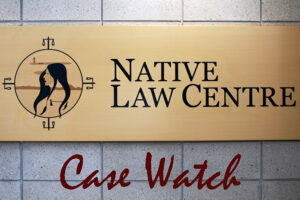Application dismissed. Yukon has engaged in “deep consultation” with the RRDC in respect to wildlife matters. There has been no breach of the duty to consult, and where appropriate, to accommodate.
Ross River Dena Council [“RRDC”] applied pursuant to Rule 31(6) of the Rules of Court, for the following order: 1) A declaration that the issuance of hunting licences and seals might adversely affect the Aboriginal title of the RRDC members in and to the Ross River Area by permitting conduct in that Area inconsistent with Aboriginal title; 2) A declaration that the Government of Yukon has a duty to consult with, and where indicated, accommodate the RRDC prior to issuing hunting licences and seals; and 3) A declaration that, in respect of each of the 2016/2017, 2017/2018 and 2018/2019 hunting seasons, the Government of Yukon failed to consult with and, where indicated, accommodate the RRDC prior to issuing hunting licences and seals. The Government of Yukon [“Yukon”] opposed the application and relied on RRDC v Yukon, 2015 YKSC 45 [“RRDC 2015 wildlife case”], where this court refused to grant a declaration of a constitutional duty to consult on wildlife matters as it was unnecessary when Yukon was ready, willing, and able to negotiate and consult on wildlife matters as set out in Haida Nation v British Columbia (Minister of Forests), [2005] 1 CNLR 72 [“Haida Nation“].
The context and content of Yukon’s duty to consult with RRDC in wildlife matters required a consideration of the previous decisions. In Ross River Dena Council v Yukon, 2012 YKCA 14 the Court of Appeal recognized that the Yukon had a duty to consult with RRDC in determining whether mineral rights on Crown land within lands compromising the Ross River Area are to be made available to third parties. Further, that Yukon has a duty to notify, and where appropriate, consult with and accommodate RRDC before allowing any mining exploration activities to take place within the Ross River Area. In the RRDC 2015 wildlife case, it was concluded that the Haida Nation test for the duty to consult, had been met.
After reviewing the principles set out in Haida Nation, there were a number of reasons why deep consultation was required by Yukon. First, in Ross River Dena Council v Canada (Attorney General), 2019 YKCA 3, the Court of Appeal confirmed the constitutional obligation in the Rupert’s Land and North-Western Territory Order (UK) which was important for the case at bar to recognize the historic and legal nature of the RRDC claim to title and its application to Yukon. Second, there have been significant impacts on the RRDC traditional territory ongoing for at least 50 years. Third, Yukon and the RRDC have been negotiating land claims on and off from 1973 to 2002 which supports the strength of the claim as negotiations would only proceed on the understanding that there was an asserted but as yet undefined underlying claim to title. Fourth, the strength of the claim was enhanced by the lands set aside, on an interim basis, for settlement purposes. Last, the comprehensive nature of the Framework for a Government-to-Government Agreement between representatives of the Kaska Nation, including RRDC.
RRDC was at the claim stage of asserting Aboriginal title. Yukon had consulted extensively with RRDC representatives through sharing the harvest results, the population surveys, and discussing wildlife management issues. Yukon had further provided RRDC with notification of planned wildlife initiatives; shared specific wildlife data and information; and provided funding to RRDC to participate in discussions and negotiations. RRDC had acknowledged the correspondence. While RRDC believes that the entire Ross River Area should be a permit hunt area, Yukon saw this as a way to limit hunting access rather than a useful wildlife management tool. It must be remembered that failure to agree does not necessarily result in a breach of the duty to consult. Yukon was also prepared to continue discussing the proposal. After responding to concerns from RRDC indicating a decline in the Finlayson Caribou Herd, Yukon closed the permit hunt for the Finlayson Caribou Herd and set the outfitter quota to zero for the 2019/2020 hunting season which was seen as significant accommodation. For these reasons, there had been “deep consultation” with RRDC with respect to wildlife matters and no breach of the duty to consult, and where appropriate, to accommodate. RRDC’s application was dismissed.


